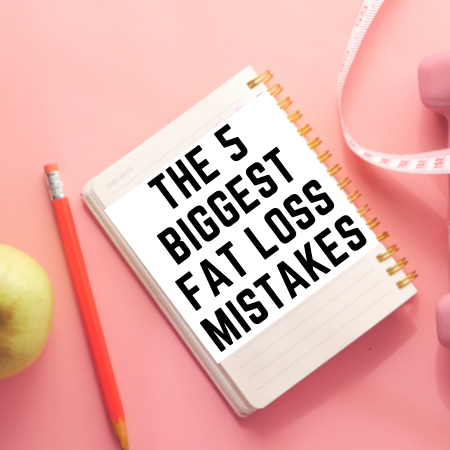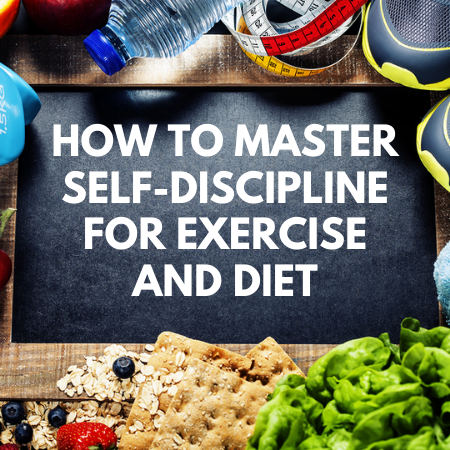
Surround Yourself with Right People
The people you surround yourself with will be the biggest influence on your (fitness) life.
According to research, the people you habitually associate yourself with can determine as much as 95% of your success or failure in life. We are actually way more affected by our environment than we think. In the words of motivational speaker Jim Rohn: You are the average of the 5 people you spend the most time with. These people affect what sorts of conversations you participate in, what lifestyle you follow, and your attitude and behavior about certain issues. Eventually, you start to think, behave and make decisions like them.
Therefore, it is important to hang out with the right people for healthy personal growth.
Check out these tips / practical steps you can take to improve your social environment and better achieve your goals!

The 5 Biggest Fat Loss Mistakes
Here’s a situation I’m sure many of us faced before. You step on the scale, seeing the numbers increase daily, or look at your belly in the mirror, realizing it is forming layers and layers day after day. You tell yourself you have to do something about it, and make a resolution this year to lose weight.
You know you have to eat less and get some form of exercise on most days of the week. You follow quick fixes from the internet like crazy fad diets and bulletproof coffee. You feel good, but when you step on that scale again and look in the mirror, nothing has changed. You wonder what you’re doing wrong and by the second month, you throw in the towel and give up.
You’re not alone. In fact, a study showed that although 77% maintained their resolutions for 1 week, only 19% continued for 2 years. What makes that 19% succeed where millions have failed? They do a lot of the right things, of course. But we must first be able to recognize the mistakes we are making, correct them, and then we can be on our way to achieve our fitness goals.
Check out the 5 biggest and most common fat loss mistakes!

6 Tips on Staying Motivated
You know exercise and nutrition are good for you. It controls your weight, reduces risks of diseases, and improves your mental health and mood.
Doing it though, is another thing. In particular, overcoming the inertia to get started can be a huge first step.
But sticking to a workout and nutrition program is even harder. It takes deep, lasting, dedication, consistency and motivation. That’s why more than a third of the world’s population is overweight.
Furthermore, many think that exercise and nutrition have to be torturous, time-consuming and/or exhausting, therefore avoiding it.
Not having the right motivation coupled with the negative views of exercise and nutrition have caused millions of people to start a program only to quit halfway.
In this article, I’ll be sharing on some tips that can help you to stay motivated.

Do you Need to Give 100% to Achieve your Fitness Goals?
“All or nothing! Give your 100% in whatever you do! Reach for the skies!” These are some quotes that many people live by. You have to go all in if you want something. You have to push yourself to the hardest to get results. You have to aim for the highest if not there’s no point even trying. Or at least really close. Sometimes it isn’t distinct in the way that people verbalize it, but it is implicit in the way they discuss it.
It seems like that’s the hype now. And I can see why. I used to feel that way too. If I want to achieve something, in this case to build muscle and lose fat, I should make sure I am doing every single thing right. If I’m serious about my fitness results, I should clock the optimum number of workouts, eat the exact number of calories, protein, fat and carbs, wake up and sleep at the same time every day, and adhere to all the things I set myself out to do. And if I don’t, I’m just not maximizing what I can do and it’ll be a huge waste.
But is this really true? Do you need to give your 100% to achieve your fitness goals? If not, how much is enough? Read on to find out more!

How to Master Self-Discipline for Exercise and Diet
Have you ever been tempted to do something for which you later feel really guilty about? Moments like these are usually due to a lack of discipline. Self-discipline is one of the strongest things to achieving your fitness goals. With strong self-discipline, you can do what you need to do in each moment without temptation or laziness getting in the way. Self-discipline forces you to say no to extra dessert, or helps you maintain a consistent workout regime to achieve your fitness goals. It empowers you to live a life that you ideally want to, helping you look better and feel better.
However, it is becoming more difficult to maintain self-discipline. But without discipline, you’re letting your life be controlled by your emotions, which may not be what you are seeking for. Remember from my previous post that discipline and willpower is finite, and will be exhausted throughout the day. But how do you develop good self-discipline? Read on to find out!

5 Ways to use Habits to Stop Being Lazy
We all are inherently lazy to some degree. Whether it is watching Netflix the whole Saturday afternoon, or skipping workouts to sleep in a little longer, it is totally normal. But when these moments start lasting longer or becoming more frequent, then it might be a problem if you have specific goals you want to achieve. Your goals suddenly become less important, and might even fall in the trap of saying “This is too hard! I’ll never be able to do it!”. But as mentioned in my previous article, the key to sustaining motivation to curb laziness is to build habits. And that is why you see some people who are able to train hard even on days with low motivation and energy!
But the question is how do we use habits to stop being lazy? Read on to find out these 5 ways!

How to Trick Your Brain into Doing Hard Things like Working Out
Have you ever wondered why it’s so easy for some people to be so motivated to exercise, or so driven to make good food choices? On the other hand, why it is so difficult for you to even get out of bed, let alone head to the gym to do a workout for an hour? And even if you managed to do so, only to have your drive dry out within a few days?
If all these sound familiar to you, you’re not alone. You’ve definitely felt frustrated or discouraged when people around you seem to have unlimited determination to achieve their goals, while you just think to yourself, “I’m never going to do this again” whenever you’re faced with something that pushes you to your limits.
But we all know that by staying in your comfort zone, or doing things that are easy, it will not get you far. It is only through discomfort that growth happens. There are surely days that you’re constantly forcing yourself to do the hard things, and it can be challenging. But everyone feels this way from time to time, even successful CEOs. However, what separates them from everyone else isn’t that they like to do difficult tasks, but how they are able to trick their brain into doing hard things even when they don’t feel like it.
And if eating right and working out consistently are hard to you, check out this article to see some of the best ways to trick your brain into doing these hard things to get in shape.

Progress Over Perfection: The Correct Mindset for Sustainable Fitness
Ever missed a planned workout and feel like a failure after? Or ate a unplanned ‘cheat meal’ only to feel utterly guilty for the rest of the day? Maybe even looked at instagram models and compare yourself with them, believing that you’re not doing enough?
Well, you’re not alone. In fact, many people view training and nutrition in this manner. They think that everything has to be perfect in order to be successful in losing weight or gaining muscle. But the truth is quite the opposite. Expecting things to go flawless can actually get in the way of accomplishing your goals. It can take the joy away from working out. It can make dieting so painful. It can make the whole fitness journey extremely stressful. More importantly, it can make you feel guilty when you’ve actually done absolutely nothing wrong.
Fortunately, there is a much better way to think of fitness. That is choosing progress over perfection. Instead of leaving you guilt-ridden, progress can inspire, excite, and sustain the way you eat and train. You’ll feel happier because there is more to celebrate and enjoy. And in this article, we will look at some ways to focus on progress instead of perfection.

5 Ways to Make Weight Loss Less Stressful
Losing weight , like any other goal that you choose to work towards, can be stressful. On the surface, weight loss can be as simple as “Calories in, Calories out” and “Exercise more, Eat less”. But because of stress, it can be much more complicated than that.
A little stress can be good - it motivates you, pushes you, and keeps you on your toes. But if you are too stressed out, you lose your healthy habits, you sleep less, you skip workouts, and you eat highly palatable food for comfort. Your energy gets depleted which could have been used for self-control. Hormones are also induced which tells your body to store body fat. This creates a downward spiral that makes weight loss harder than it already is. In fact, stress has shown to have strong links with obesity.
If you’re experiencing the above symptoms due to stress, you should know that weight loss isn't meant to be like that. Here are some ways you can make weight loss less stressful and more manageable.

6 Small Lifestyle Habits to Lose Weight without Trying too Hard
Many times, losing weight can feel daunting. It seems like making huge changes in your life like meal prepping and spending hours in the gym is the only way to achieve your goals. Fortunately, that is not how sustainable weight loss works. Making such a drastic change can help you lose weight fast, but it will not be lasting. What we should aim to achieve here is to lose weight and keep it off.
And how do we achieve that? Through making small changes to your existing lifestyle! As you incorporate minor adjustments day by day, you’ll soon begin to see how they can add up to something very significant. The more these adjustments are repeated, the stronger and more automatic the habit will be, and you’ll be more likely to stick to them.
We have seen how powerful a habit can be in my previous article. Now we will specifically look at small habits we can make to achieve sustainable weight loss. Let’s dive right in.
